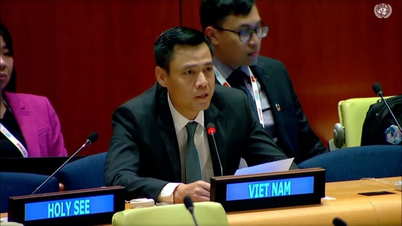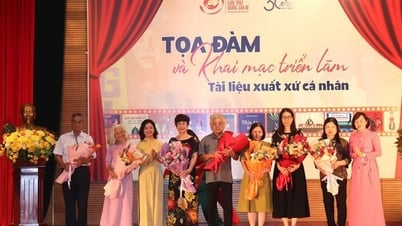On World No Tobacco Day, May 31, 2025, the World Health Organization (WHO) launched a global communication campaign with the theme "Exposing the false appeal", calling on countries to join hands to protect public health, especially the young generation, from the increasingly sophisticated attacks of the tobacco industry. At the same time, it points out the truth behind the misleading statements of tobacco corporations.
Does the tobacco industry contribute to scientific research on the harmful effects of tobacco to protect public health?
The truth is that the tobacco industry has a long history of creating arguments about smoking and health to dismiss or undermine scientific research on the harms of tobacco. In the past, their research focused on denying the harms of tobacco. Recently, as public awareness of the harms of tobacco has increased, the tobacco industry has shifted to promoting new products as a "safer" alternative to continue to attract users . Evidence from studies provided by tobacco corporations is often funded by tobacco companies themselves, which does not guarantee objectivity and transparency.
Are tobacco companies complying with regulations prohibiting advertising and marketing of their products?
In fact, tobacco corporations around the world use many sophisticated marketing and promotion strategies, mainly targeting teenagers, women and girls through modern media, influencers in the community, sponsoring sports activities such as racing, football...
There have been lawsuits against the tobacco industry, for example, in February 2025, the New York State Judiciary (USA) filed a lawsuit against 13 manufacturers, distributors and sellers of e-cigarettes for contributing to the “epidemic” of e-cigarettes among teenagers.
Has the tobacco industry implemented corporate social responsibility (CSR) and brought benefits to the community?
In fact, the tobacco industry practices corporate social responsibility (CSR) to build an image for promotion, to cover up negative impacts, and to normalize addictive products to attract users.
Support governments in tobacco control?
Globally, the tobacco industry has a long history of taking legal action against tobacco control. It has always litigated, threatened to litigate, or influenced the policy-making process to delay or weaken tobacco control policy.
Heated tobacco products (IQOS) are for adults only and help quit smoking conventional cigarettes?
In fact, new tobacco products are targeting young people. A recent analysis by the global tobacco industry watchdog (STOP) shows that Philip Morris Japan (PMJ) has planned to create widespread acceptance of IQOS (a heated tobacco product), including young people and even students, not just targeting adult smokers.
Philip Morris promotes IQOS as an aspirational lifestyle product. This marketing strategy has made the new addictive product quickly available to non-smokers, especially teenagers, leading to a rapid increase in usage among students.
According to statistics, in the United States, the rate of e-cigarette use skyrocketed from 11.7% to 27.5% among high school students in the period 2017 - 2019. In the United Kingdom, e-cigarette use among 15-year-old girls increased from 10% in 2018 to 21% in 2021. Meanwhile, in New Zealand, 27% of young people use it.
In Korea, after 1 year of heated tobacco products being introduced to the market, 2.8% of middle and high school students used this product.
In Vietnam, according to data from the Ministry of Health, in just 2 years, the rate of e-cigarette use among 13-15 year old students has increased significantly (from 3.5% in 2022 to 8.0% in 2023). E-cigarette use is high among young people (15-24 years old) with a rate of 7.3%.
New tobacco products are not harm reduction products. The US Food and Drug Administration (DFA) only confirms that IQOS is a product that reduces exposure to certain substances in the product, does not confirm that this product helps reduce health risks, and does not recognize heated tobacco products as a product that is safer for health than conventional cigarettes.
The tobacco companies’ encouragement of cigarette smokers to switch to heated tobacco products to reduce harm is scientifically unfounded. Heated tobacco products contain nicotine and are just as addictive as regular cigarettes. It is not possible to reduce the harm caused by cigarettes by introducing another addictive product, while at the same time creating a new generation of addicts (including children and women). Evidence from countries shows that switching to heated tobacco products does not help cigarette smokers quit, but rather perpetuates their addiction to nicotine and exposure to many toxic chemicals when using multiple types of tobacco products at the same time.
WHO has affirmed: “There is no evidence to prove that e-cigarettes and heated tobacco products are less harmful than conventional tobacco products”. E-cigarettes and heated tobacco products contain nicotine, a highly addictive substance that is harmful to health, especially brain development in children and adolescents.
Source: https://baophapluat.vn/su-that-dang-sau-nhung-cam-ket-cua-nganh-cong-nghiep-thuoc-la-post549161.html



![[Photo] Prime Minister Pham Minh Chinh chairs the Government's special meeting on law-making in May](https://vphoto.vietnam.vn/thumb/1200x675/vietnam/resource/IMAGE/2025/5/22/1c880aae96fd4e0894abc47a46fe19ba)

![[Photo] General Secretary To Lam works with the Central Inspection Commission](https://vphoto.vietnam.vn/thumb/1200x675/vietnam/resource/IMAGE/2025/5/22/54820e91fd124c4cb691961718c4ee5d)























































































Comment (0)